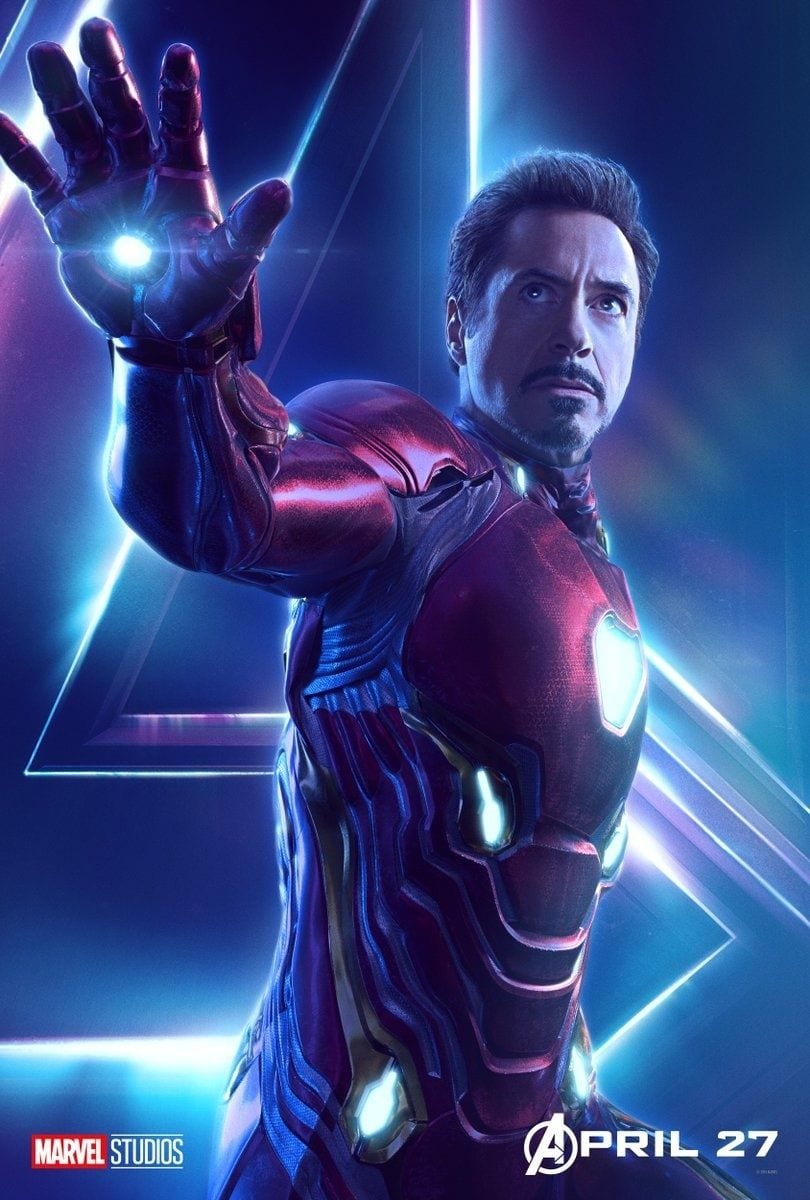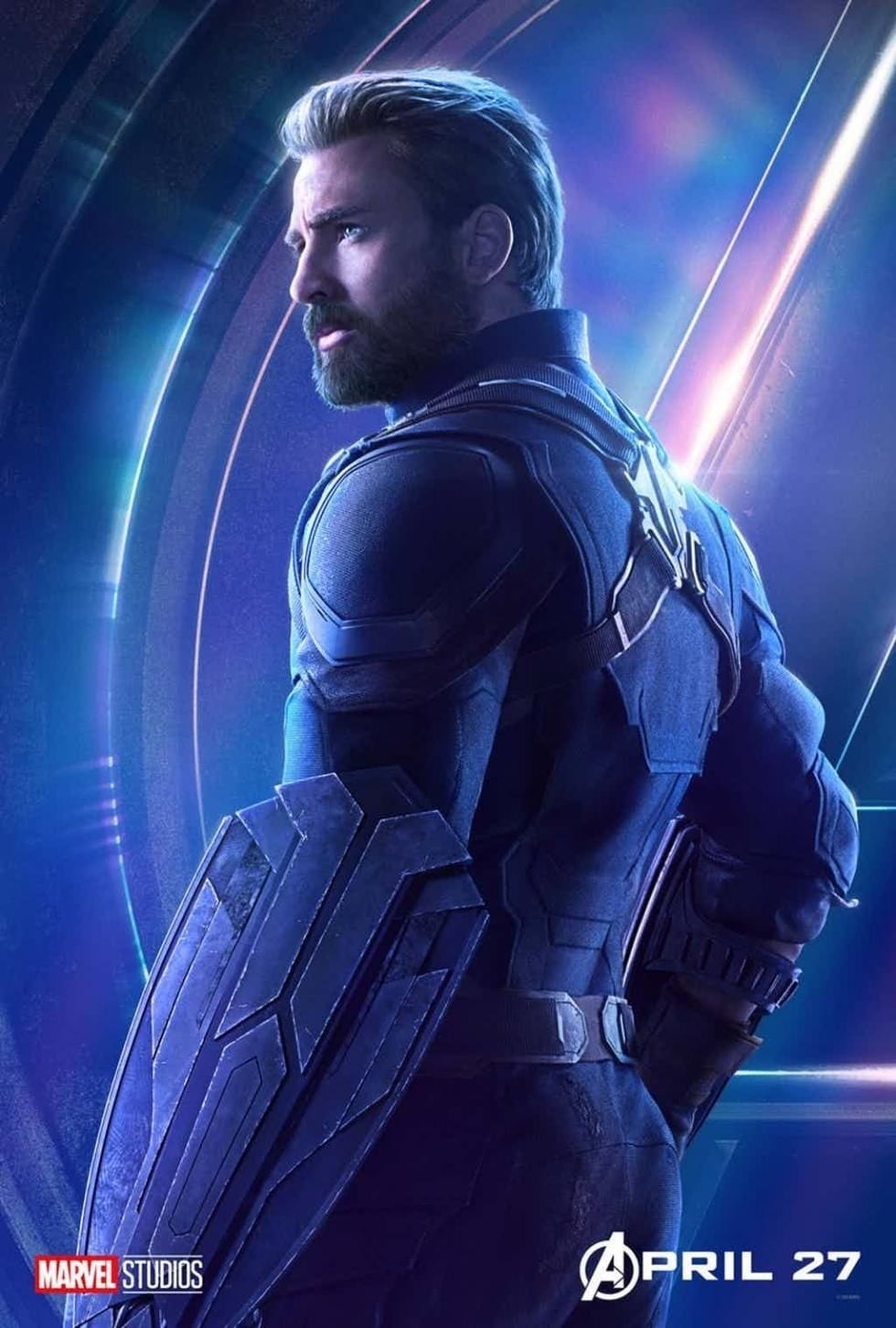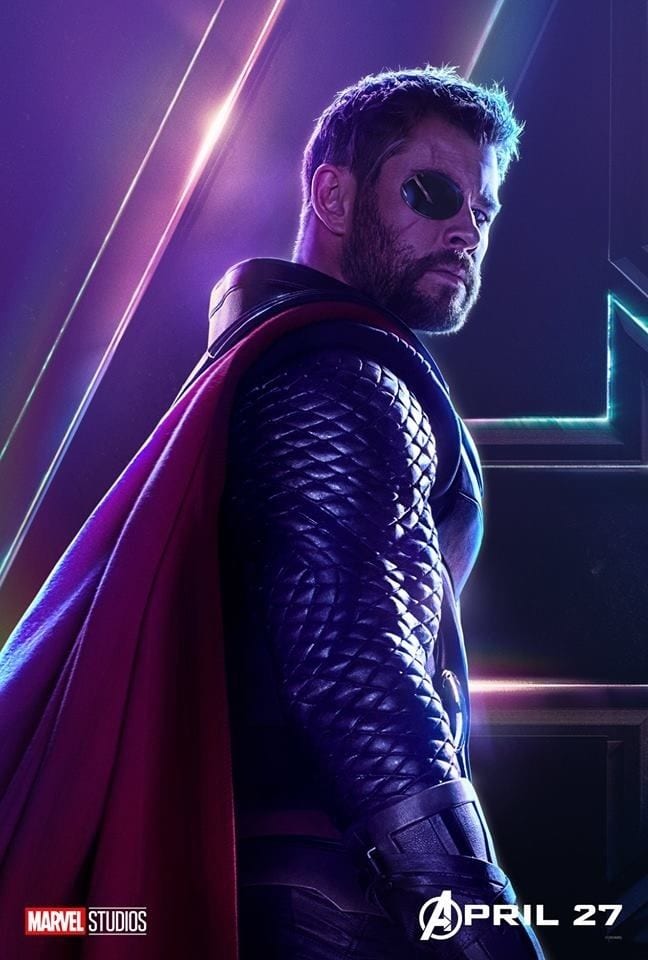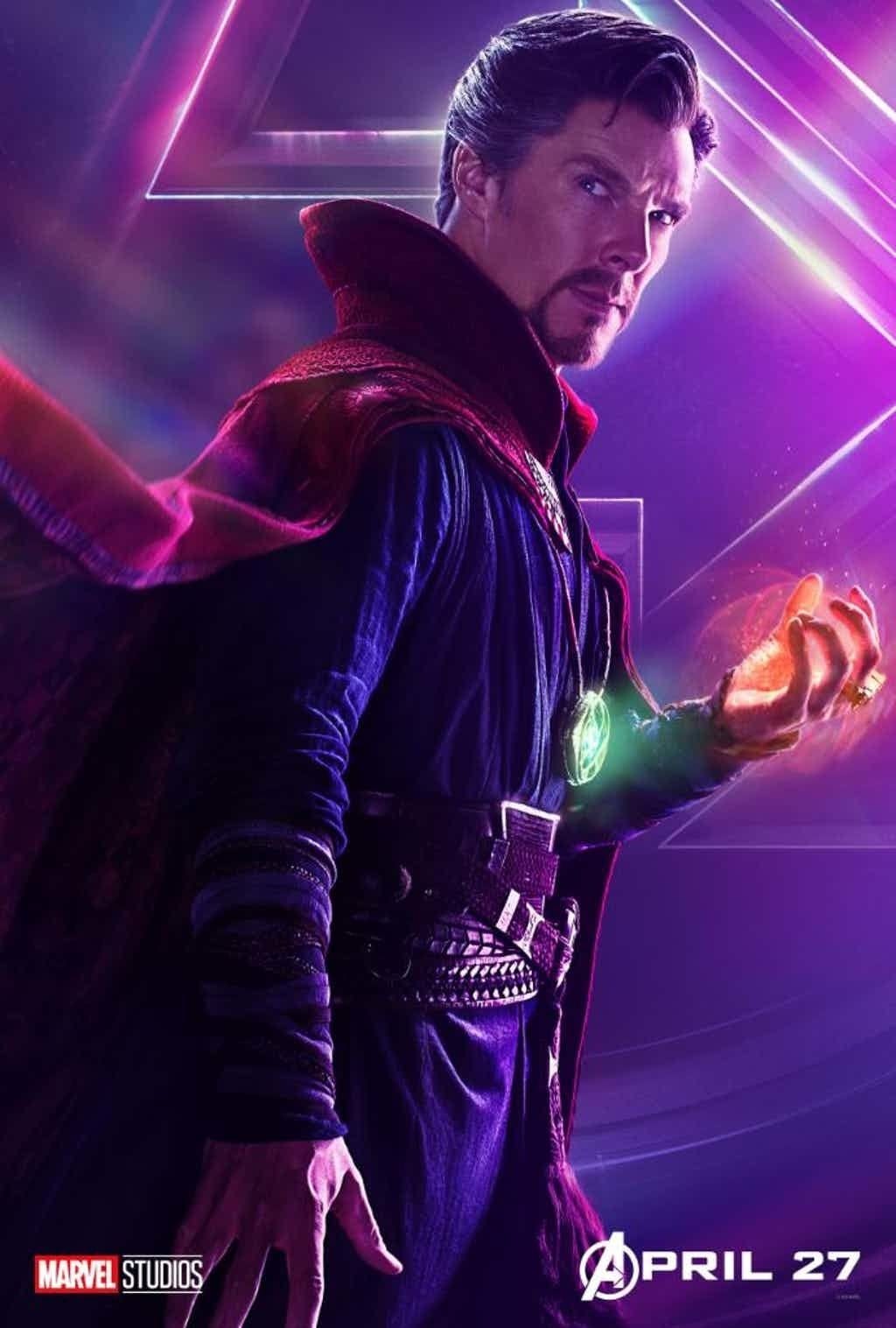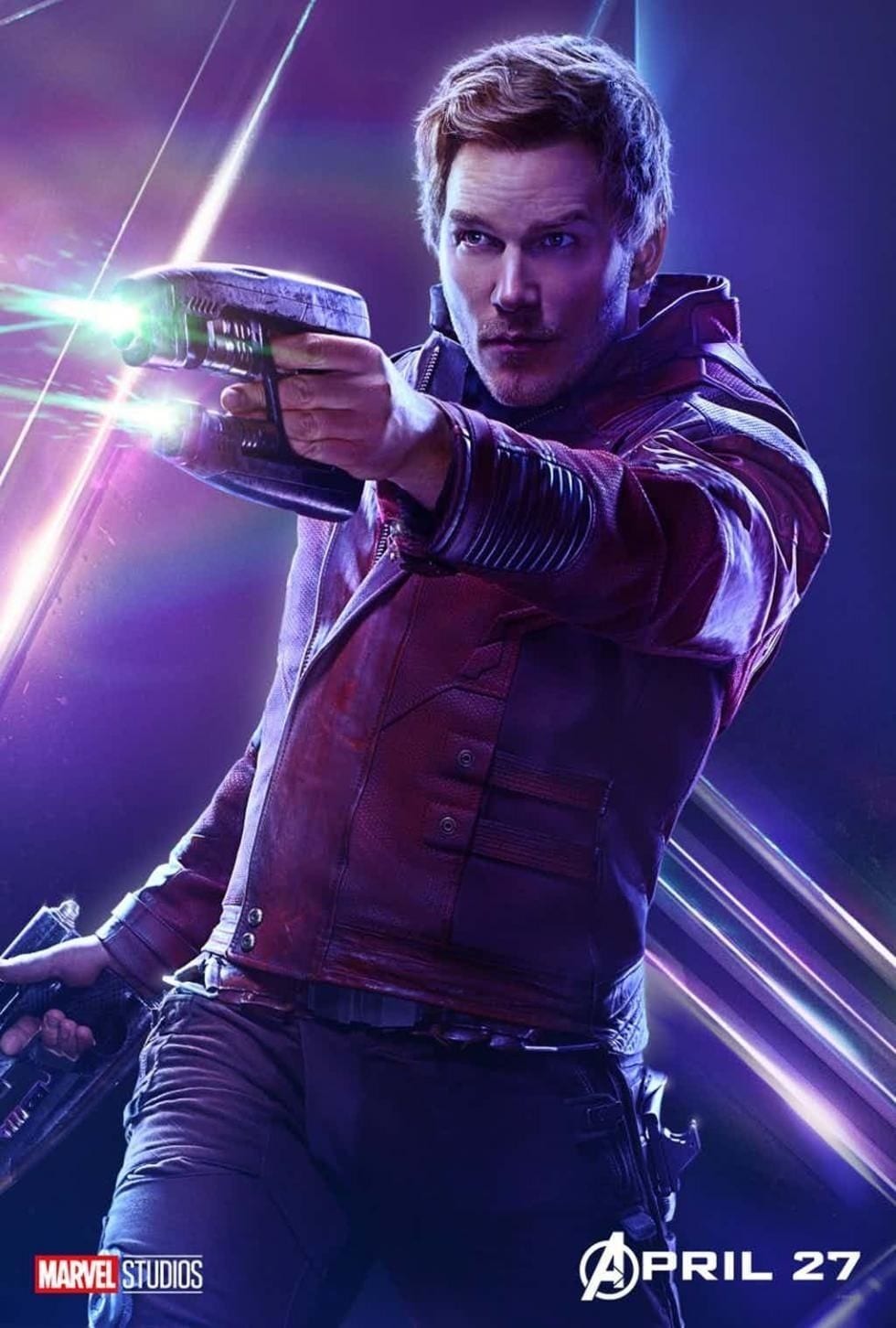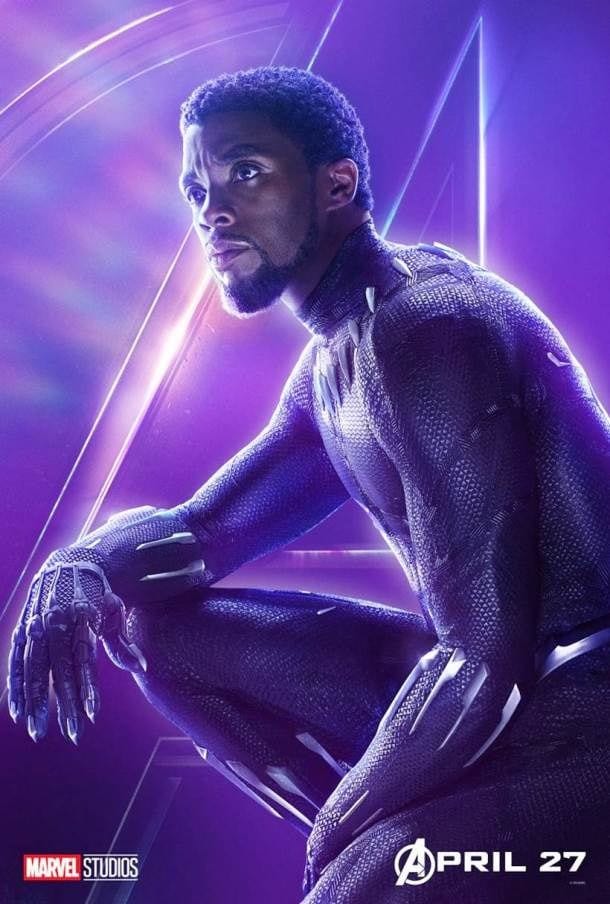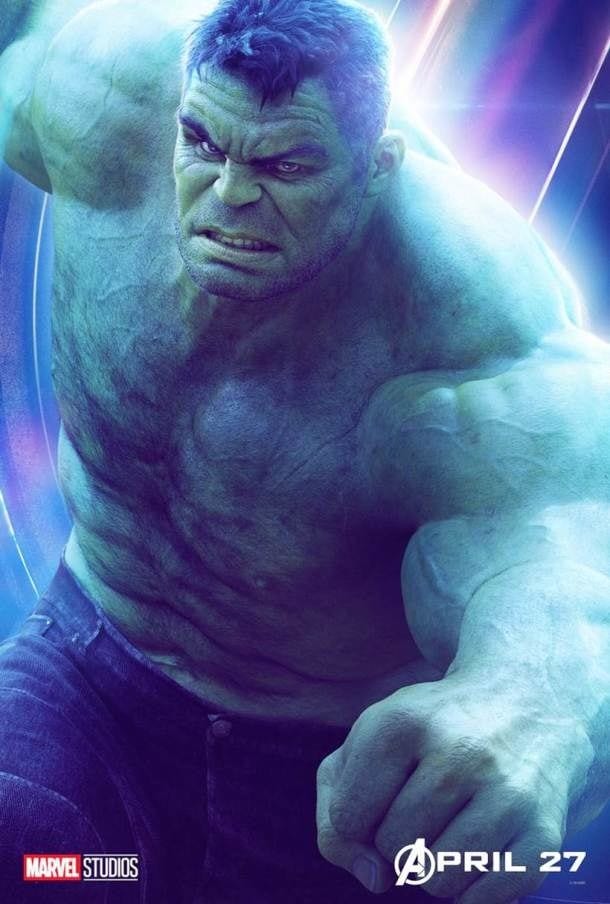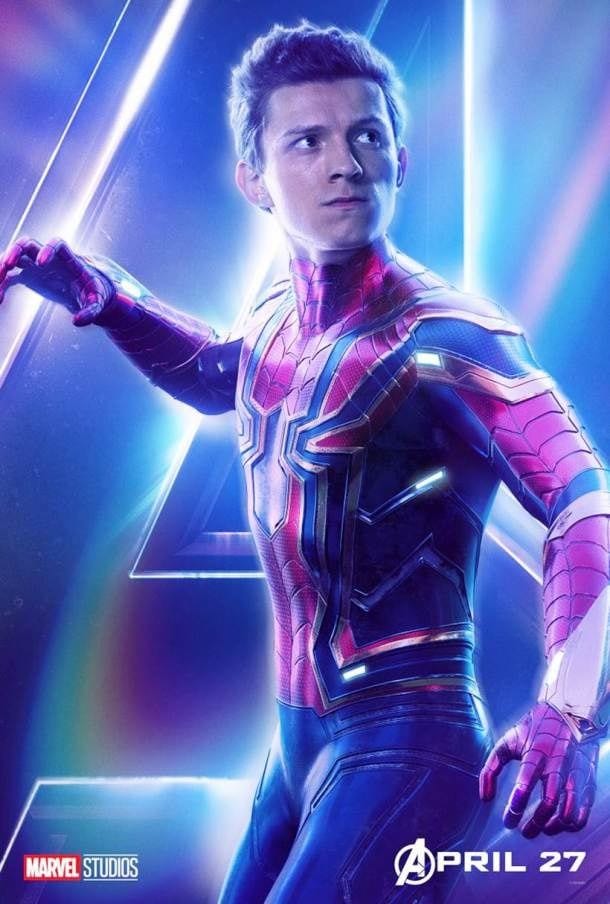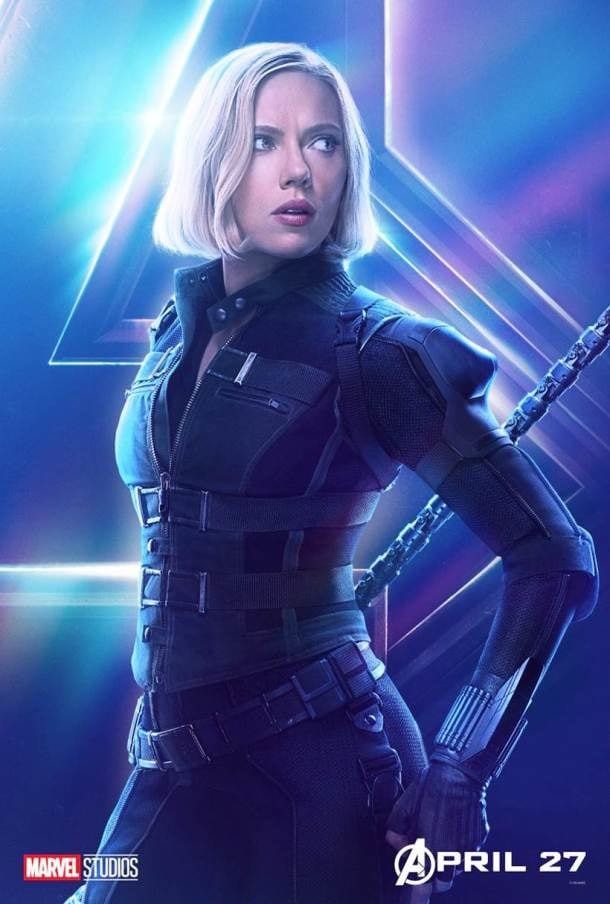
Complete and utter spoilers for Avengers: Infinity War to follow.
For the better part of a year, I’ve been writing articles about the Marvel Films for PopMatters, starting with Blade (Norrington, 1998). My last published article covered X-Men: The Last Stand (Ratner, 2006) and I’ve written articles up to The Incredible Hulk (Letterier, 2008). I’ve taken my time, gone through each of these films systematically from comic book history through production and release, but the most vital aspect of the articles has been the context and perspective that comes from years of retrospect. Reviews at the time of release are never able to capture the full significance and impact of a film because that can only truly be gauged after some time has passed. Reviews for Avengers: Infinity War (Russo Brothers, 2018) suffer from this issue particularly acutely. Not only is the film part 19 of a longer, serialized narrative, but it’s also very much part one of a two-part film concluding with the untitled Avengers film to be released next May.
The filmmakers behind these films have announced that they will continue to withhold the title of Avengers 4 for a little while to allow audiences to sit with Infinity War for some time. In a post-release interview with Den of Geek, screenwriters Christopher Markus and Stephen McFeely claimed that the title alone of this next movie will make viewers think of Infinity War in a new light. After the title, we will get a plot synopsis, and a trailer, and ultimately the film itself. And so, in two years’ time, when my series of regular Marvel articles finally reaches Infinity War, I will have already seen Avengers 4: Infinity War Was All a Dream and I will be able to place it in its proper context. But I feel it’s valuable, since views on this film are destined to morph and evolve very quickly in the lead-up to the next film, to express my initial reactions to Infinity War. This will almost be like a time capsule of my viewpoint, right now, the day after I saw the film, before all of my assumptions and predictions are wiped away by reality. So here is my reaction, not review, to Avengers: Infinity War.
Just to get this out of the way first: I loved it. It was nearly overwhelming in its scope and scale, and it felt like it never let up for a second. I was hugely satisfied. Most films in the Marvel Cinematic Universe (MCU) prior to Infinity War could be enjoyed by casual viewers, but were much more rewarding to longtime fans who paid attention and noticed all of the connections. Infinity War is not for casual viewers. It does the bare minimum to remind viewers of pertinent history and character dynamics before throwing them into the super-geeky deep end. MCU films have gradually been drifting in that direction over the past couple of years. Like any serialized television show, where you can probably hop in at episode six or so and still understand what’s going on, by episode 19 a new viewer will likely be lost. Considering The MCU films have averaged $330 million at the North American box office, and $786 million at the worldwide box office, it’s a safe bet to assume viewers will be familiar with the storylines and characters. So, as more than a casual viewer, and someone who remembers Red Skull from Captain America: The First Avenger (Johnston, 2011), I felt greatly rewarded by this film. But I did have a few concerns, which are completely based on assumptions that I will address now.
Josh Brolin as Thanos (Photo by null – © null) (IMDB)
The plot of Infinity War is relatively straightforward: Thanos (Josh Brolin), a giant, purple, wrinkly-chinned sociopath, is seeking the six Infinity Stones, which control power, space, reality, souls, time, and minds. With all of these Stones in his possession, Thanos will kill half of the living beings in the universe, as he feels that overpopulation is leading most societies to ruin. He regards his plan as a great service to all of these societies by randomly removing half of the consumers, allowing the remaining half to benefit from a greater share of the resources. The heroes of the film learn of his plan, and band together to prevent him from gathering all of the Stones. But the heroes fail. Thanos gets all six Infinity Stones and, with the snap of his fingers, half of the people in the universe cease to exist. The remaining heroes are left in despair, feeling their failure.
Infinity War is unique in that the film is largely from the villain’s point of view. Thanos is the central character of the piece, and the protagonist. The 20-some superheroes that populate the film are supporting characters. This is a bold move that has never been attempted on this scale before. Thanos’ motivations, though certainly misguided, are made very clear and understandable over the course of the film as he has the most screen time. And like the protagonists of most Hollywood films, he wins the day.
The theme of heroes failing is not unusual in blockbuster filmmaking these days. Star Wars: The Last Jedi (Johnson, 2017) similarly explored the concept of heroes failing, and I wonder if Infinity War will be as divisive among the fans for that reason. I wonder: what could possibly be going on right now in the United States for such big Hollywood blockbusters to explore defeat and failure? Regardless, these films are bold statements against the typical commentary about Hollywood happy endings and the heroes always winning. Not since Rogue One: A Star Wars Story (Edwards, 2016) have so many heroes died at the end of a major Hollywood film. Right now in the Marvel Cinematic Universe, Loki (Tom Hiddleston), Nick Fury (Samuel L. Jackson), Maria Hill (Cobie Smulders), Doctor Strange (Benedict Cumberbatch), Bucky Barnes (Sebastian Stan), Scarlet Witch (Elizabeth Olsen), Vision (Paul Bettany), Spider-Man (Tom Holland), Black Panther (Chadwick Boseman), and every Guardian of the Galaxy except Rocket (voiced by Bradley Cooper) are dead.
But of course, they’re not really dead. Which leads me to my biggest concern for the future of the Marvel Cinematic Universe. The fact that many of these deaths will obviously be reversed in Avengers 4: Thanos Immediately Regrets His Decision, will make any future sacrifices far less meaningful. Spider-Man is headlining another film in July 2019. James Gunn is already prepping Guardians of the Galaxy Vol. 3 for a 2020 release. Black Panther, star of the biggest solo superhero film of all time, will certainly headline another film. So it’s certain that all of these characters will be back around this time next year. But what if the next Avengers film wants to add some emotional heft by, as many fans have predicted, killing off well-worn characters such as Iron Man (Robert Downey Jr.) or Captain America (Chris Evans)? How can audiences be expected to buy into these sacrifices emotionally after the film reverses the Infinity War deaths? I found myself trying to have an emotional reaction to the ending of Infinity War, but I could not because I knew this was just a cliffhanger that would soon be resolved.
It’s pretty well-known in pop culture that comic book deaths mean very little. Major characters die pretty frequently in superhero comics, only to be resurrected later by some comic-y logic involving time travel, alternate dimensions, magic, clones, or any number of things. Indeed, the concept of temporary death in comic books has become so ubiquitous that writers have begun to use that to their advantage. The death of a major character opens up options in a story that has otherwise become stale. When Steve Rogers was killed at the end of Civil War in Captain America #25 (March 2007), it allowed writer Ed Brubaker to explore the character in his absence and allow Cap’s friend Bucky Barnes the opportunity to try to fill his shoes. Rogers returned in Captain America: Reborn #6 (January 2010), but that means Brubaker had nearly three years to tell Captain America stories without him. This is the advantage of killing off Jean Grey, Superman, the Human Torch, Bruce Wayne, Wolverine, Tony Stark, etc. In their temporary absence, new stories can be told. Comic book publishers strive for a similar effect with big event stories. These are typically big crossovers where all of the characters in the universe come together to face an enormous threat and, regardless of the outcome, the world, the characters, the status quo ends up up completely changed afterward. Sound familiar?
Avengers: Infinity War is Marvel’s attempt at big event stories and comic book deaths. But the key to these types of stories in the comics is that writers have new issues on a monthly basis to explore the ramifications of the status quo shifts. Ideally, by the time everything returns to normal (as things tend to do in comic books) the writers have had ample time to fully explore the new storytelling opportunities. The issue with Infinity War is that everything will likely be reversed in the next film. They don’t have a few dozen books published monthly to work with, but only three films per year. Change can happen quickly, but it can be reversed just as quickly. Events like Thanos’ plan coming to fruition may not be explored thoroughly enough before things revert back to normal. Also, future viewers of the MCU films will not spend a year thinking about the deaths of their favourite characters. They will only have to wait as long as it takes to start the next movie. So I’m concerned, but I’m also curious how Infinity War will be perceived in the future, when its biggest, boldest storytelling move has been reversed and left behind.
I’m also curious how Infinity War will be viewed once its overall story is told. While watching the film, with its endless characters and parallel plotlines, I found myself thinking about the Lord of the Rings Trilogy (Jackson, 2001-2003). When Infinity War ended, I was left thinking specifically about Lord of the Rings: The Two Towers (Jackson, 2002). The Two Towers is my least favourite film in the trilogy, likely because it’s the middle chapter and lacks a satisfying beginning or ending. Infinity War feels like a middle chapter. All of the emotional resonance comes from character relationships built in previous films. We care about the romance between Gamora (Zoe Saldana) and Star Lord (Chris Pratt) because it has slowly blossomed across two Guardians films. Tony Stark and, later, Natasha Romanoff (Scarlett Johansson) briefly reuniting with Bruce Banner (Mark Ruffalo) after his three-year absence only resonates after seeing their respective relationships develop in Avengers: Age of Ultron (Whedon, 2015). Also, Thanos’ assault on Earth, in search of two Infinity Stones held there, happens relatively easily, due to the Avengers fracturing and disbanding in Captain America: Civil War (Russo Brothers, 2016). Infinity War makes little attempt to explain these dynamics. It expects the audience to already understand.
The emotional resonance also needs to come from the previous films because there’s very little character development in this particular installment. Infinity War eschews character development, partly because there’s not enough room for all of the characters to have satisfying arcs, but primarily because it’s wall-to-wall action. There’s a lot of incident in the film, and it never lets up once it starts. It makes for an exciting ride upon this first viewing, but I’m curious to see if it holds up to repeated viewings. The best blockbusters are very much “come for the action, stay for the characters” endeavours. I love these characters, and I was thrilled seeing them interact in Infinity War, but I wonder if I will find this film lacking in a few years.
Also, Infinity War lacks full resolution. Since it’s clear that the story will not end here, and that so many of the casualties will be reversed, this feels like the first half of the story. Until we see the resolution in Avengers 4: Back to the Future, Infinity War can not be properly assessed.
One thing at which Marvel Studios’ films have always excelled is balancing conflicting tones. This was true as far back as Thor (Branagh, 2011), when Marvel filmmakers had to figure out how to make a fantastical, Shakespearean-sounding Norse god fit into the same world as Iron Man. In Infinity War, characters such as Captain America (Chris Evans) and Black Panther, headliners of fairly sombre, serious films, have to inhabit the same world as cosmic space pirates like the Guardians of the Galaxy and a pop culture obsessed teen like Spider-Man without it feeling like a stretch. The directors, Joe and Anthony Russo, and screenwriters, Markus and McFeely, had a trial run of integrating various tones in Captain America: Civil War, but they really nail it in this film.
The interesting pairings are endlessly fascinating. Thor (Chris Hemsworth) and the Guardians mixed perfectly, with Star Lord feeling self-conscious about Thor’s hyper-masculinity and Rocket bonding with him over weaponry. Iron Man and Dr. Strange, whom many critics pointed out had very similar origin films, are constantly at odds since they are both know-it-all, overconfident jerks. Iron Man also butts heads with Star Lord, as they are both used to being the cocky team leaders. There are other, smaller moments that work well, too. Like Captain America and Black Panther equally outpacing the other warriors in the charge of the climactic battle in Wakanda. Or the two most badass women in the MCU, Okoye (Danai Gurira) and Black Widow, fighting side by side. Or Captain America, of all people, meeting Groot (voiced by Vin Diesel) for the first time. Groot utters his typical line “I am Groot,” to which Cap replies “I am Steve Rogers.” These are the moments where longtime fans of the MCU receive their reward.
These moments also demonstrate that the Russos have learned a lesson from Guardians of the Galaxy director James Gunn: Never be afraid to undercut a serious moment with a goofy joke. For example, a serious scene in which Gamora makes Star Lord promise to kill her if Thanos captures her, which dovetails into Drax (Dave Bautista) claiming, falsely, that he can stand so still that he turns invisible. Despite universe-crippling stakes, the MCU always has room for the jokes.
Robert Downey, Jr. as Tony Stark / Iron Man
My final point is about Iron Man’s arc across this series, which is absolutely phenomenal. This series of films has taken Tony Stark from self-centred, misogynistic war profiteer in Iron Man (Favreau, 2008) to a man on a far-flung planet ready to sacrifice his life to save the universe in Infinity War. Iron Man taught Tony that he needs to work for the greater good, and that’s when he started his romance with assistant Pepper Potts (Gwyneth Paltrow). Iron Man 2 (Favreau, 2010) showed Tony that he can’t do everything by himself, and he opened himself up to Pepper completely. The Avengers (Whedon, 2012) forced Tony to trust other people, and made him willing to sacrifice himself for the greater good. Iron Man 3 (Black, 2013) dealt with Tony’s post-traumatic stress, and began his attempts to end his superhero career. Avengers: Age of Ultron depicted Tony haunted by the thought that Earth may be invaded again, and he takes major, destructive steps to protect it. In Captain America: Civil War Tony was confronted with the ramifications of his actions in Age of Ultron, and this former iconoclast, who kissed-off a Senate hearing in Iron Man 2, sides with the world’s governments to regulate superheroes in a further effort to protect the planet. Spider-Man: Homecoming (Watts, 2017) saw Tony take young Spider-Man under his wing as a father-figure, in an attempt to train the next generation of Avengers, and propose to Pepper.
In Infinity War, we find Tony on the verge of marrying Pepper, and wanting to have a child. But he’s then confronted with the invasion he has feared for six years, and he resolves to give it all up to stop Thanos. This is a very brief summary of the complex, nuanced work that the writers have done over the years. What’s clear is that the evolution and development of Tony Stark’s character, across eight films in ten years, has been astonishing. He changes, gradually, naturally, in every film, in ways that make perfect sense and flow directly from the situations he encounters. Robert Downey Jr.’s Tony Stark has emerged as the most well-rounded, well-developed, interesting superhero characters on film. If Avengers 4: Tony Kills Thanos is his swan song, then it had better provide a satisfying payoff to the remarkable work that has come before.
To conclude, this reaction essay to Avengers: Infinity War is meant to simply encapsulate my feelings and concerns about this enormous and enormously satisfying film before the build up to the next Avengers film changes everyone’s minds about this film. Avengers 4: Infinity War-er promises to include benched characters such as Hawkeye (Jeremy Renner), Ant-Man (Paul Rudd), Valkyrie (Tessa Thompson), as well as soon-to-be-introduced characters the Wasp (Evangeline Lilly) and Captain Marvel (Brie Larson), the latter of which was teased in the post-credits scene. Maybe the filmmakers will produce a film that plays off Infinity War, without cheapening it, and still have genuine emotional stakes. So far Marvel Studios has risen to every challenge it has faced, so I’m prepared to be wowed yet again in one year.


